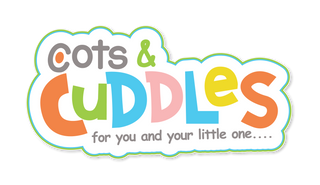Introduction
Toddlers are naturally curious and full of energy, eager to explore their surroundings and engage with the world. While their daily antics may seem like pure fun, playtime is a cornerstone of their physical, emotional, and cognitive development. From fostering social skills to enhancing creativity, play provides toddlers with opportunities to grow, learn, and connect. Let’s dive deeper into the transformative power of play and why it is essential for your little one’s well-being.
1. Cognitive Development: Learning Through Exploration
Play is a toddler’s primary way of understanding the world. Engaging in activities like solving puzzles, building with blocks, or engaging in pretend play helps develop problem-solving skills and critical thinking. For example, when a child builds a tower, they experiment with balance and learn through trial and error. These activities stimulate neural connections, fostering cognitive growth and boosting memory and attention span.
Pro Tip for Parents: Incorporate toys like stacking blocks, simple puzzles, or magnetic tiles into playtime to encourage exploration and creative thinking.
2. Motor Skills: Developing Coordination and Strength
Playtime is essential for strengthening both fine and gross motor skills. Activities such as scribbling with crayons, threading beads, or molding dough improve hand-eye coordination and dexterity. Outdoor play, like climbing, running, or riding a tricycle, helps develop larger muscle groups and balance.
Why It Matters: Fine motor skills are crucial for tasks like writing, while gross motor skills are necessary for physical activities, ensuring your toddler stays active and healthy.
Activities to Try:
- Drawing and coloring to enhance grip and control.
- Playing catch or hopping games to improve agility and strength.
3. Social and Emotional Skills: Learning to Connect
Play is a key tool for socialization. Whether it’s a playdate or a group activity at preschool, toddlers learn how to share, take turns, and resolve conflicts. Pretend play allows them to practice empathy by putting themselves in others’ shoes. For example, playing “doctor” can help them process feelings of care and responsibility.
Tip for Parents: Create opportunities for group play by joining community toddler groups or arranging playdates. Observe their interactions to guide them gently when needed.
4. Emotional Expression and Resilience
Through play, toddlers learn to express and regulate their emotions. Acting out scenarios, whether it’s a tea party or a superhero adventure, allows them to channel their feelings. Play also teaches resilience—when their block tower falls, they learn to rebuild it without giving up.
Parental Insight: Encourage open-ended play to help your child navigate emotions in a safe and controlled environment. This strengthens their emotional intelligence and confidence.
5. Creativity and Imagination: Unlocking Their Potential
Toddlers have vivid imaginations, and play nurtures this creativity. Activities like drawing, dress-up, or creating stories with action figures stimulate their ability to think outside the box. This imaginative thinking is the foundation for innovation and problem-solving later in life.
Creative Play Ideas:
- Provide props like costumes or toy kitchen sets for role-playing.
- Encourage art and craft sessions with safe, colorful materials.
6. Parent-Child Bonding: Strengthening Relationships
Playtime isn’t just about your toddler—it’s an opportunity for you to connect with them. Shared activities foster trust, communication, and love. Whether you’re building blocks, reading stories, or engaging in a friendly game of catch, these moments create cherished memories and strengthen your bond.
Practical Tip: Dedicate at least 20-30 minutes of uninterrupted playtime each day to focus solely on your child. It reinforces their sense of importance and belonging.
Conclusion

Play is the heart of toddlerhood—a joyful blend of fun and learning. It shapes their physical abilities, nurtures creativity, and builds the foundation for emotional and social intelligence. As parents, embracing and facilitating purposeful play will help your child thrive and blossom. So, roll up your sleeves, step into their world, and rediscover the magic of play!



